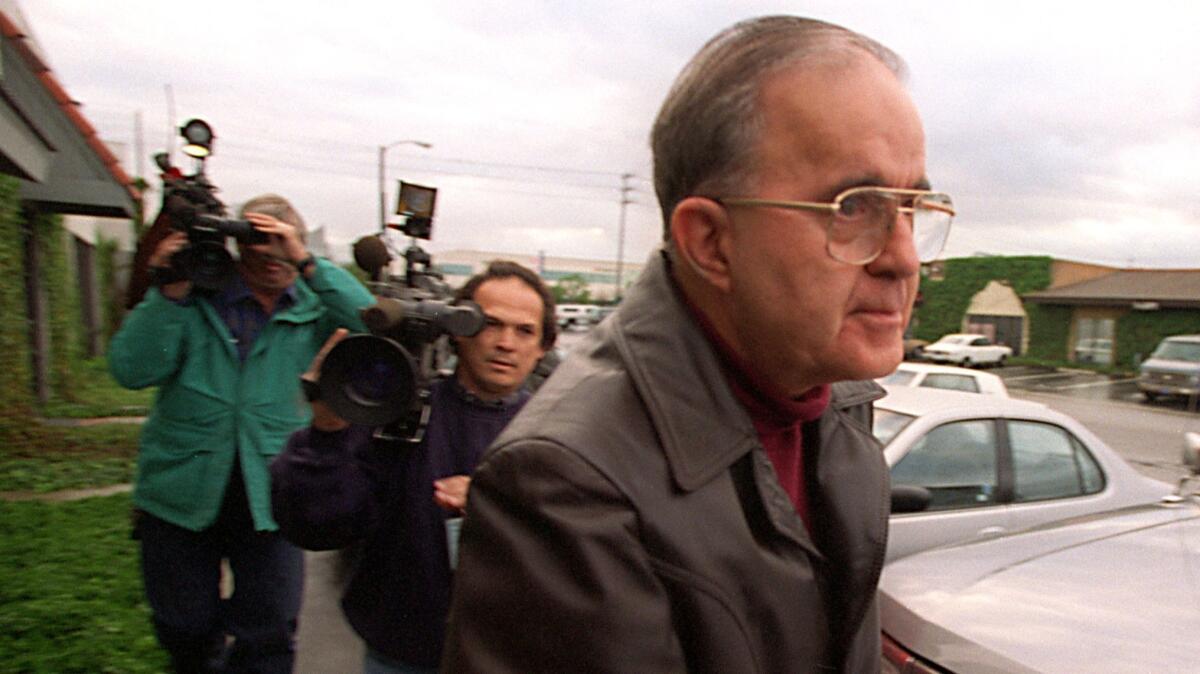Orange County pays off the last of $1-billion bankruptcy debt

- Share via
When Todd Spitzer first ran for a spot on the Orange County Board of Supervisors in 1996, he did so with a promise to be a good steward of the public’s money.
“My campaign was focused under the shadow of the largest municipal bankruptcy at that point in the history of the country,” he said Saturday.
Twenty-three years later, that shadow has been lifted.
The county on Saturday delivered its last payment on the $1 billion worth of bonds it used to get out of bankruptcy. With interest, the repayment totaled about $1.6 billion.
Orange County still owes about $20 million to various cities and agencies that have a separate repayment deal — a debt county officials expect to clear by late next year.
Bad bets on interest rates sent the highly leveraged county into bankruptcy in 1994. At the time, it was the largest local government to seek such protection. Officials proposed raising taxes to help right the county’s finances, but voters refused. The county froze hiring, laid off thousands of workers and slashed budgets.
The crash led to reforms. The state Legislature tightened investment rules, the county now has much more financial transparency and its budget doesn’t rely heavily on investments.
Now that the bankruptcy is paid off, Spitzer said, he worries that other Orange County leaders will lose perspective as time goes on about being fiscally responsible.
“Elected officials should always operate as if there’s a bankruptcy around the corner,” he said. “You have such a responsibility to be financially prudent.”
Still, he said, he’s glad to get out from under the “dark cloud” of restrictive spending. He hopes to invest more in parks and in the county’s aging government buildings — including the civic center and central jail, which he said have been particularly neglected.
At the end of an era, what’s the lesson?
“Never try to make your government produce more than it can,” Spitzer said. “Orange County tried to make its investment funds earn a higher return than everybody else was getting. If it looks too good to be true, then it obviously is.”
Former Orange County Treasurer Robert Citron borrowed money to place big bets on speculative high-yield securities that depended on interest rates remaining low. But they didn’t stay low, and the money evaporated.
A grand jury investigation later found that Citron, who had won praise for his investment skills, relied on a mail order astrologer and a psychic for interest rate predictions as the county’s treasury began to falter.
Citron pleaded guilty to financial fraud and was sentenced to work in the county jail. He died in 2013.
Mark Baldassare — a former UC Irvine urban planning expert who wrote a book on the bankruptcy — told The Times in 2013 that had Citron’s speculations in complex securities not imploded, more cities, schools and local agencies would have taken similar risks to plug budget gaps.
Twitter: @andreamcastillo
ALSO
Invasive weevil spreads north, endangering California’s palms
Cross-border shuttle service is target of rock-throwing attacks
Body of missing South Pasadena boy is found near Santa Barbara County lake, ending grim search
UPDATES:
4:45 p.m.: This article was updated with comments from Todd Spitzer and more details on the bankruptcy.
This article originally was published at 12 p.m.
More to Read
Sign up for Essential California
The most important California stories and recommendations in your inbox every morning.
You may occasionally receive promotional content from the Los Angeles Times.











